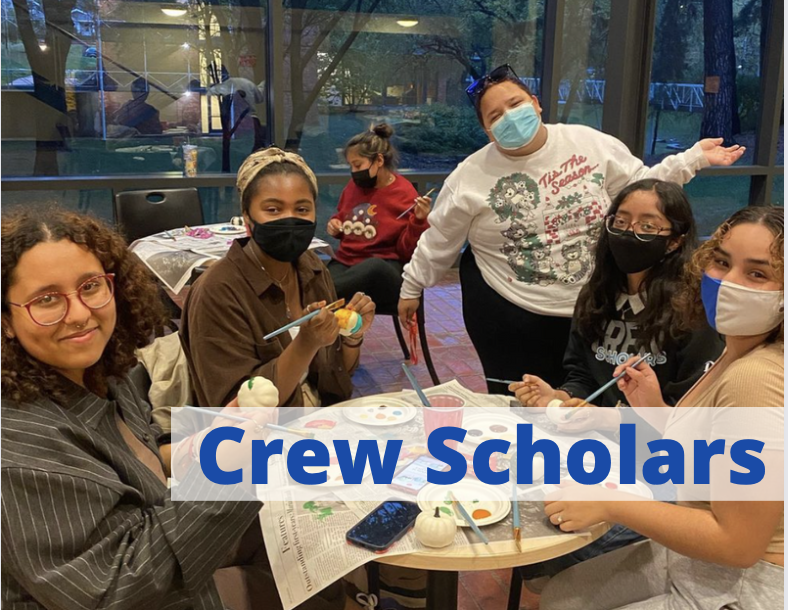For many students of color, attending a predominantly white institution (PWI) in the center of the Midwest can be challenging. Since its inception, Drake University’s Crew Scholars program has been tackling this issue. Now, Crew Scholars plans to expand from one cohort of 20 students to three cohorts, with a total of 60-75 students.
Each cohort is made up of like-minded entering first-year students from diverse backgrounds, and each student gets a staff or faculty member mentor.
“It was really nice to have that support system of students who were equally concerned and could lean on each other for help,” said Aanika Pfister, a sophomore Crew member, about her first-year experience in the program.
These groups meet weekly for a one-credit course led by Director of Equity and Inclusion Jazlin Coley alongside a faculty member. The courses cover a multitude of topics, from assisting students adjusting to a PWI to simply struggling with homework in classes. The presence of Crew at Drake can be a deciding factor for many prospective students.
“As a Black person, I want to make sure my school at least has adequate representation and knows how to support students of color,” sophomore Crew member Munachi Okuagu said. “That was something that stood out [about Drake]. The other schools that I was looking at didn’t have a program of this caliber.”
Crew is designed to provide a robust support system for students of color at a PWI. Members of the program have said that it is effective.
“A lot of other schools want to advertise diversity but don’t do anything about it,” sophomore Areli Herrera said. For Herrera, Crew is a safe place for discussion. “It’s mostly bonding and talking about what is bothering us.”
The expansion of Crew means that there will be up to three times as many members as there are now. In addition, three full-time faculty members will be hired to each facilitate one cohort of Crew alongside Coley, who will continue working with each cohort.
Also under the expansion will be more employment positions for junior and senior Crew members on campus to work in the Office of Equity and Inclusion and assist with each cohort. In order for the program’s expansion to be successful, Associate Provost for Campus Equity and Inclusion Jennifer Harvey said they need more faculty and staff mentors, and there is already a lot of interest.
She said that though success means more than keeping students at Drake, it’s clear that the program works wonders when it comes to retention.
“Retention numbers are incredible and graduation numbers are incredible,” Harvey said. “We know it’s effective.”
The 2021 three-year average retention rate is 88.5 percent for members of Crew compared to 74.8 percent for a comparison group of Black and Hispanic Drake first-year students not in Crew. By expanding Crew, more applicants will be accepted, and Harvey hopes more students of color will participate in the program.
“It has gotten more and more competitive. We have so many apply each year,” Harvey said. “It’s just the right moment to [expand].”
One change made by Crew’s expansion is the removal of the Flight Program. This was a free program that allowed entering first-year students of color not involved in Crew to be a part of a cohort that doubled as a First Year Seminar. Harvey said Flight was less successful in terms of retention.
“Instead of continuing Crew and Flight, we realized the resources were there to make [Crew] a three cohort program,” Harvey said.
Since the program has been successful, she now looks to share what Crew’s purpose is with more white students.
“It’s not about ‘there’s something wrong with students of color,’” Harvey said. “[We need to] undo some of the stereotypes of students of color in college that aren’t true.”
Harvey and Coley work together with Crew members and all Drake students to help create a stronger sense of unity between students of all backgrounds. Harvey said that the whole campus needs to be aware of Crew and its mission to help it succeed. According to Coley, Drake has set an example for other institutions through its development of Crew.
“With the announcement of the expansion, I’ve received a lot of messages and requests for conversation for starting similar programs at other universities,” Coley said. “The more people that you have behind this program provides more value for why we need these programs.”







